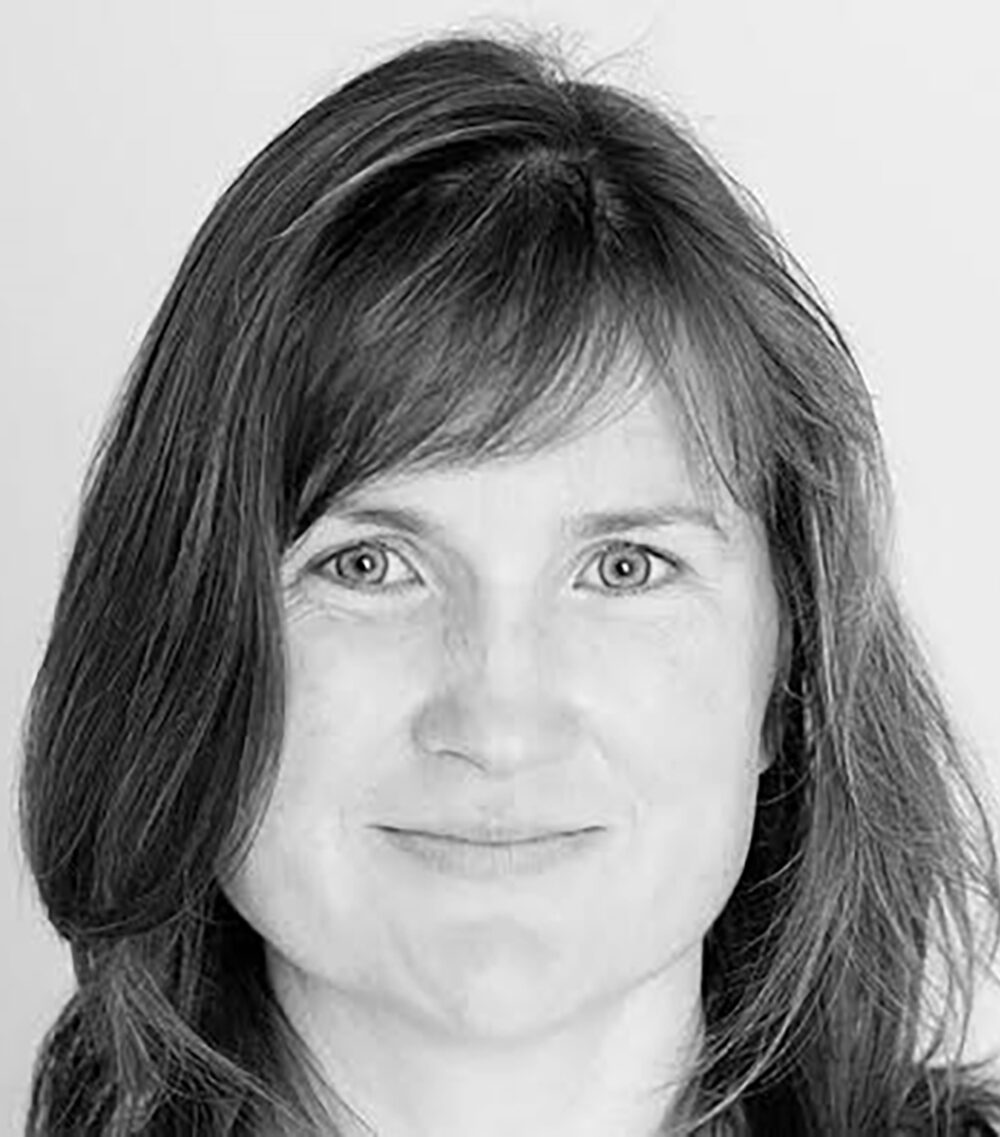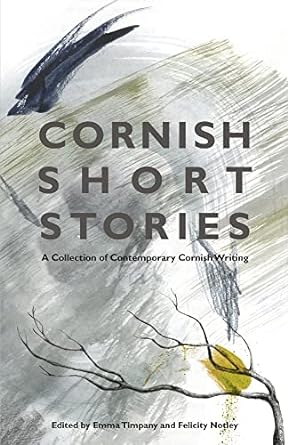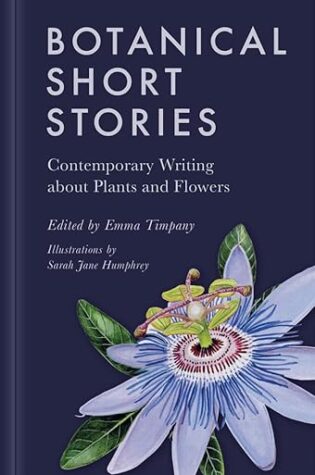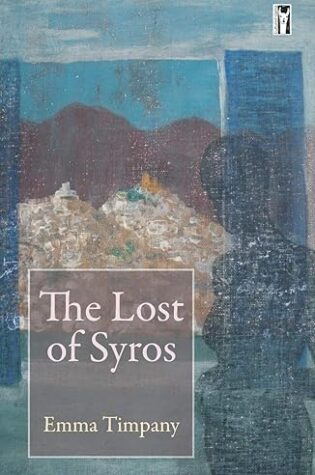Interview with Emma Timpany
writer and editor
Questions by Kate Horsley
Tell us a little about where you live.
I was born and grew up in the far south of New Zealand but now live near Truro in Cornwall in a small, quiet village close to the River Fal and lovely places like Roundwood Quay and Coombe. It’s part of an old woodland on a ridge of high ground above steep valleys. Although quite close to a city, it retains a wonderful sense of wildness. Much of my work is inspired by the natural world, and my garden and the area around where I live is on the edge of a beautiful, protected stretch of the Cornwall National Landscape.
I work at an old oak GWR desk with a southerly view of roofs, an ever-changing sky and cloudscape, trees and passing birds. As it is midsummer, the window in front of my desk is obscured by a large buddleia bush with deep violet flowers providing food and cover for birds, insects and butterflies. At this time of year the sun is too high in the sky to shine in through the window, so I write in the midst of leafy shade. People, cars, vans and horses pass by on the road a few yards away, hidden from view behind our overgrown hedge. At the end of the road is the remains of an old playing place, where mystery places were staged during the middle ages, as the area lies on the ancient pilgrimage route to St Michael’s Mount.
Which short story writers have influenced you the most and how?
So many writers have influenced me. The New Zealanders Katherine Mansfield, Patricia Grace, Owen Marshall and Kirsty Gunn were early influences, as were the Australian writers Helen Garner, Patrick Holland and Tim Winton. Claire Keegan’s collections Antarctica and Walk the Blue Fields affected me because of their absorbing visual sense, attention to detail and humanity. Andrea Barrett’s collection Ship Fever about science and the natural world has long had a place in my heart. I return to masterpieces like Mansfield’s ‘The Garden Party’ and ‘At the Bay’, Cheever’s ‘The Swimmer’ and Baldwin’s ‘Sonny’s Blues.’ I am always reading and rereading short stories as they grow in richness over time.
Further influence comes from the creative approach many contemporary short story writers have to the form. In recent years, I’ve been impressed by the Scratch Books anthologies, Reverse Engineering and Reverse Engineering II, which combine great contemporary short stories with author interviews. Another excellent title from Scratch is The Poet and the Echo containing short stories inspired by poems. Standout pieces include Yiyun Li’s exquisite and heartbreaking ‘All Will Be Well’, Irenosen Okojie’s ‘Filamo’, Chris Powers’ ‘The Crossing’, Sussie Anie’s ‘Maintenance’ and Leila Aboulela’s ‘To Enter the Garden.’
We are very excited that you’re contributing a beautiful short story to Inkfish! What inspired your piece?
The visual is very important to me, as is colour. I’ve always been interested in art work and artists – my husband is a visual artist as are many of my friends. ‘Gift from the Sea’ came out of this engagement with art and the reading of artist monographs, catalogues and biographies. My hometown of Dunedin is rich in creative activity and communities and has long provided inspiration for all kinds of art and Cornwall is exactly the same.
After the publication of Cornish Short Stories and my novella Travelling in the Dark in 2018, I experienced a long, difficult dry spell for 18 months. During May 2020 lockdown, each long, hot afternoon, I retreated to a room overlooking the garden hoping to find my way back to writing. At first I wrote down whatever was on my mind spontaneously; after a week or two, this mental clearing-out made space for my imagination to begin working again. Daily writing (of any kind) remains necessary to me as that is usually how my ideas arrive. The more I write the more likely ideas are to appear – writing begets writing.
‘Gift from the Sea’ was the first story that came to me after that fallow period and reflects some of the frustration I was experiencing at the time. However, whatever I was going through was nothing compared to what was happening in the wider world – perhaps that is why the story is set on a beach with dangerous currents and unforgiving tides, and one of its themes is life’s unfairness. Its conflict occurs in the dynamic between opposite forces: creation and destruction, anger and release, wounding and healing. It has become the starting point for a new collection of short stories.
Looking back, I can see that the stories written after 2020 differ from those published in my two previous short story collections The Lost of Syros and Three Roads. The fallow period marked the end of a phase of my writing which lasted from 2008-2018, and I’ve now entered a new stage in my journey.
What feels different about writing short rather than long?
The short story has a reputation as a challenging form because of its intensity. Its brevity means that readers are aware of the writer striking a wrong note much more easily than in the longer novel form. The reason I find short stories compelling is that their intensity lends them a power which is somehow, rather magically, more than the sum of their parts. The best ones continue to reveal themselves over time and grow in richness with rereading. The greatest combine truth and compassion alongside a gem-like perfection and symmetry and linger, in their entirety, long in the mind.
I began writing short stories in quiet moments when my young children were asleep or at nursery school. In those years, it was challenging to find the time or concentration for longer work, although I have always written novel-length fiction alongside short stories. Travelling in the Dark began life as a novel but became a novella after its final edit. With longer form fiction, I have learnt that it helps me to have some initial plan or idea of the story’s overall structure whereas, with short stories, there is no plan – I follow the story wherever it leads. My writing practice is to make many small revisions to my stories to bring them to their final form over many months.
Is there an anecdote you could share about your research process?
I’ve always been interested in small details such as how the meanings of words change over time. For example, the title story of my second short story collection, Three Roads, looks at the mythology surrounding the Roman goddess of the crossroads, Trivia, whose name means ‘the place where three roads meet’. In Roman times, all children wore an amulet around their necks to protect them from harm, and, upon reaching adolescence, girls dedicated their amulets to Trivia and boys to Mercury at altars on the crossroads. I was interested in how the meaning of Trivia had changed over time to mean a gutter or common place and then has, after further changes, eventually come to mean something of little importance. I always collected these little bits of knowledge (trivia?) because they interest me, and then, often years later, they find their way into my stories.
You’ve edited some amazing collections featuring the short fiction of Cornwall-based writers! Could you tell us about the process of gathering stories and constructing a collection? What do you enjoy most about your work as an editor?
I have been lucky enough to work on two short story anthologies, Cornish Short Stories, which I co-edited with the writer Felicity Notley, and the very recent collection Botanical Short Stories. The anthologies were published by The History Press in 2018 and 2024 respectively and in each case, the contributors were chosen through an open call for submissions. Choosing stories to form an anthology is a rewarding and difficult process as the stories need to work together as well as be excellent standalone pieces. Having to turn down high quality work is the hardest part of the process as, inevitably, more good stories are submitted than will fit into a book with a limited word count.
When putting my own short story collections together or working on anthologies, I create an outline which includes a little basic information about each story such as the title, a one sentence synopsis, the word count, point of view, tense and one word which encompasses the theme. The next step is to experiment with the placement of the stories until they become a resonant whole. Although time-consuming, I enjoy this aspect of the editing process as I find it creative and intriguing.
My favourite part of the creating the anthologies is the opportunity to work with other writers. Writing can be a lonely occupation, so there is a special joy in bringing a group of voices together and building creative connections. The importance of including new writers alongside emerging and established writers shouldn’t be underestimated – it’s always a pleasure to see writers take their first step into publication. And it is much easier to edit other people’s stories than my own because I’m not familiar with them.
What are you working on now?
I’ve been caught up in the publication of Botanical Short Stories and am also busy with my own writing. I’ve completed a first draft of a new novel about three families living as neighbours in a small community in New Zealand. My third short story collection is also taking shape. As mentioned earlier, ‘Gift from the Sea’ was the first of these new works to emerge. I have written or have drafts of nine stories. Some are inspired in whole or part by artworks and many are set on the edge, in the liminal space between land and sea.
About Emma Timpany
Emma Timpany was born and grew up in the far south of Aotearoa New Zealand. She lives in Cornwall. Her publications include the short story collections Three Roads (Red Squirrel Press) and The Lost of Syros (Cultured Llama Publishing), a novella Travelling in the Dark (Fairlight Books) and Cornish Short Stories: A Collection of Contemporary Cornish Writing (The History Press, co-editor). Emma’s writing has won awards including the Hall and Woodhouse DLF Writing Prize and the Society of Authors’ Tom-Gallon Trust Award . Her work has been published in literary journals in England, New Zealand and Australia. Visit Emma’s website or follow her on Twitter.





